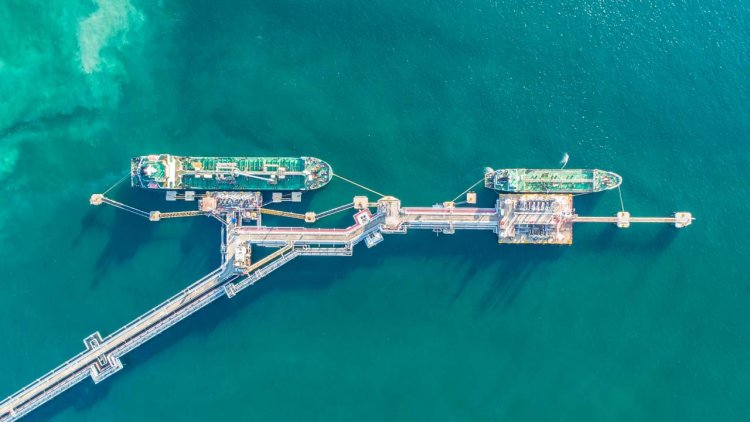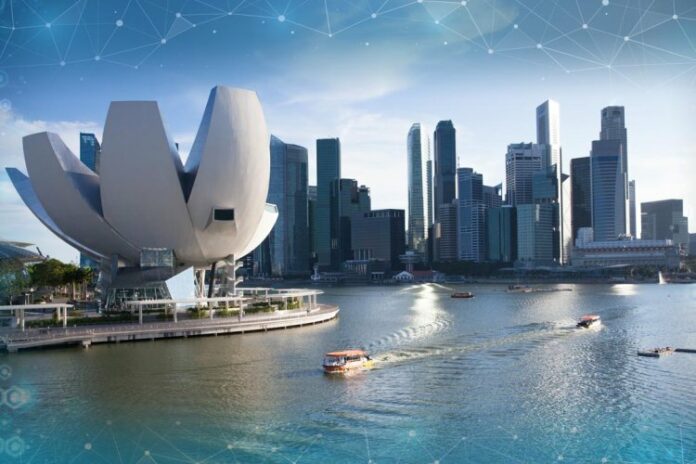To up the ante on the digitalisation of Singapore’s bunkering sector, DBS, in partnership with Trafigura Group’s marine fuels supply and procurement joint venture TFG Marine, leading maritime players Ocean Network Express (ONE) and Ascenz, and supported by the Maritime and Port Authority of Singapore (MPA), have successfully completed Singapore’s first live bunker delivery financing pilot transaction. The transaction was done by way of an electronic bunker delivery note (BDN).
Singapore is the world’s leading bunkering hub in terms of volume, with close to 50 million tonnes of marine fuel sold in 2020. However, banks currently rely on physical copies of the BDN and other supporting documents to avail bunker financing to clients. This is a cumbersome process that typically takes a few days to a week as clients have to manually deliver the physical BDN back to shore for compilation with other paper documents, before a trade finance application can be submitted. The newly digitalised process demonstrated that in future clients will be able to obtain financing for their underlying trade in under two hours, enabling them to obtain working capital faster and better manage their cashflows.
Another pain-point the digital BDN mitigates against is the risk of fraud in the bunker industry. In the traditional bunker trade world, the physical BDN has a higher risk of being manipulated as it can be used to request for financing for underlying deliveries which may not be genuine or which could have already been financed by another bank. With the digitalisation of the BDN, this risk is mitigated as counterparties are now able to ascertain the trade data at source. This is done by leveraging the Mass Flow Meter (MFM) system for bunkering electronically. This helps to provide greater transparency and certainty to participants in the bunker trade supply chain ecosystem.

Sriram Muthukrishnan, Group Head of Trade Product Management, DBS, said:
“Trust and transparency are the keys to Singapore’s continued leadership in trade and trade finance. The digitalisation of bunker delivery notes is one of many pivotal steps necessary to transition Singapore’s bunkering sector into the digital era and to ensure our port and shipping industry is future-ready. The objective is to co-create an end-to-end digital workflow that enhances efficiency and transparency for bunker trades, while building trust with banks and shipowners which are fundamental to the long-term growth and development of Singapore’s bunker ecosystem.”
Kenneth Lim, Assistant Chief Executive (Industry) of MPA, said:
“MPA has been accelerating the maritime industry’s digital transformation efforts, and these include digitalisation of the bunkering sector, a vital part of our hub port service offering. The adoption of digital documentations will help stakeholders across the value chain move towards more efficient and transparent operations that are aided by data-driven decision making.”
Kenneth Dam, Global Head of Bunkering, TFG Marine said:
“This pilot project has allowed TFG Marine to demonstrate how the use of Mass Flow Meters, that we have installed on our barges in the port of Singapore and elsewhere, not only increases transparency for customers in terms of the quantity of fuel received, but can also be adapted to provide real time information as a digital bunker delivery note to counterparties including customers, the port authority, financing banks and port agents. Singapore is already one of the busiest bunker hubs in the world and will benefit further by utilising digitalisation to increase transparency.”
Julien Glory, Chief Executive Officer, Ascenz, said:
“Our electronic bunkering delivery note provides Singapore’s maritime ecosystem with a more efficient, accurate and transparent data collection technology. By improving the end-to-end traceability, this major innovation supports trust between participants in the bunker trade, including banks, buyers and suppliers. With the digital revolution speeding up in the maritime sector, Ascenz is well positioned to help the maritime players sail that ocean of opportunities. We build smart technology to support their efficiency and sustainability.”
Takashi Kase, Senior Vice President (Fuel & Global Vessel Operations), ONE, said:
“The eBDN is a significant milestone for the Singapore Marine Fuel industry and ONE is proud to be an integral part of this journey to drive digitalisation and enable enhanced efficiency. Singapore Maritime ecosystem’s readiness to leapfrog and lead the global industry innovations, creating a transparent and well-managed digitisation flow, will further strengthen the dependability and reliability of Singapore as a Marine Fuel Hub.”

The live pilot transaction comes on the back of a joint agreement signed between DBS and MPA in 2020, to accelerate the digitalisation and innovation of financial services and payments across Singapore’s maritime industry.
The collaborative areas which MPA and DBS have identified include streamlining and enabling payment transactions between the users of maritime services to expedite end-to-end payment life cycles, as well as digitalising supporting documents for financing. MPA and DBS will also facilitate innovation and creation of potential new financial solutions with the startups ecosystem for the maritime sector.
For the next phase of development, there are plans to integrate the use of digital BDNs with SGTraDex once the digital utility is operational in 2022. Developed by public and private sector partners led by the Alliance for Action (AfA) on Supply Chain Digitalisation, SGTraDex is a common data infrastructure launched in July 2021 to facilitate trusted and secure data sharing across supply chains. In addition, added transactional data points such as the receiving of vessel and barge location and the timing of delivery can help to enhance visibility to the underlying physical trade, further improving risk mitigation in the bunker industry and elevating Singapore’s position as a world-class digital and bunkering hub.



